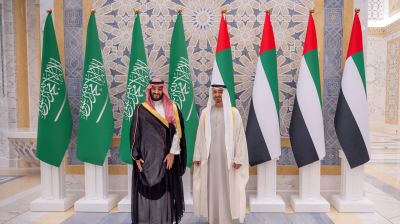From Manama to Baghdad and Kyiv
This article has been published by Political Violence at a Glance on 14 March 2022.
Much has been written over the past few years about the global decline of democracy and the growing repression of political pluralism. Strongmen such as Erdogan, Putin, Modi and Xi Jinping—and perhaps even Ali Khamenei and Mohammed bin Salman—dominate regional or global politics and offer the world an alternative political and economic model based on authoritarian control. Not only do these autocrats rule in their own countries, they push their model into what they consider their spheres of influence—places such as Georgia and Belarus for Russia; Hong Kong and Taiwan for China; Iraq and Syria for Iran; and Yemen and Bahrain for Saudi Arabia.
The Russian invasion of Ukraine underlines a point that recent history has made several times already: Strongmen that intervene militarily in neighboring countries to impose or restore authoritarian rule reveal the shaky foundations of their own political order and increase its vulnerability if they fail. Putin is showing the world that notions of Russia as the linchpin of “Slavic brotherhood” and custodian of “Kievan Rus” get their meaning mostly from the barrel of a gun. And yet the Russian regime itself derives some of its legitimacy from such imperial notions.
Read full article.
Follow @ErwinVeen on Twitter.






